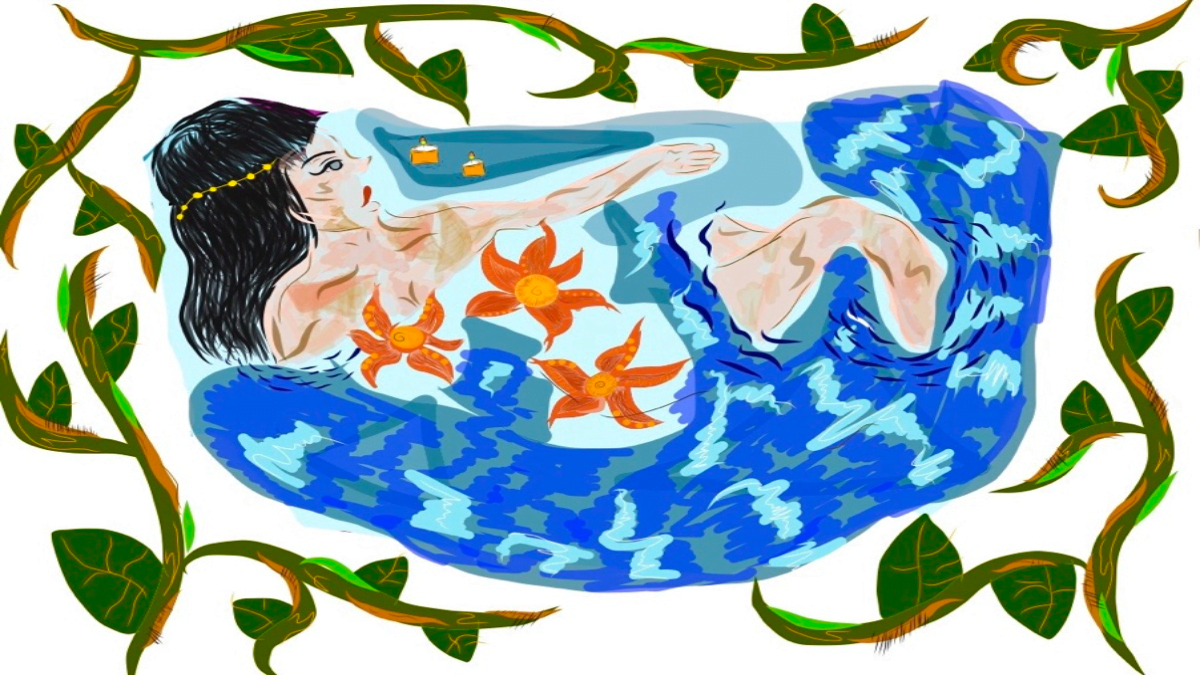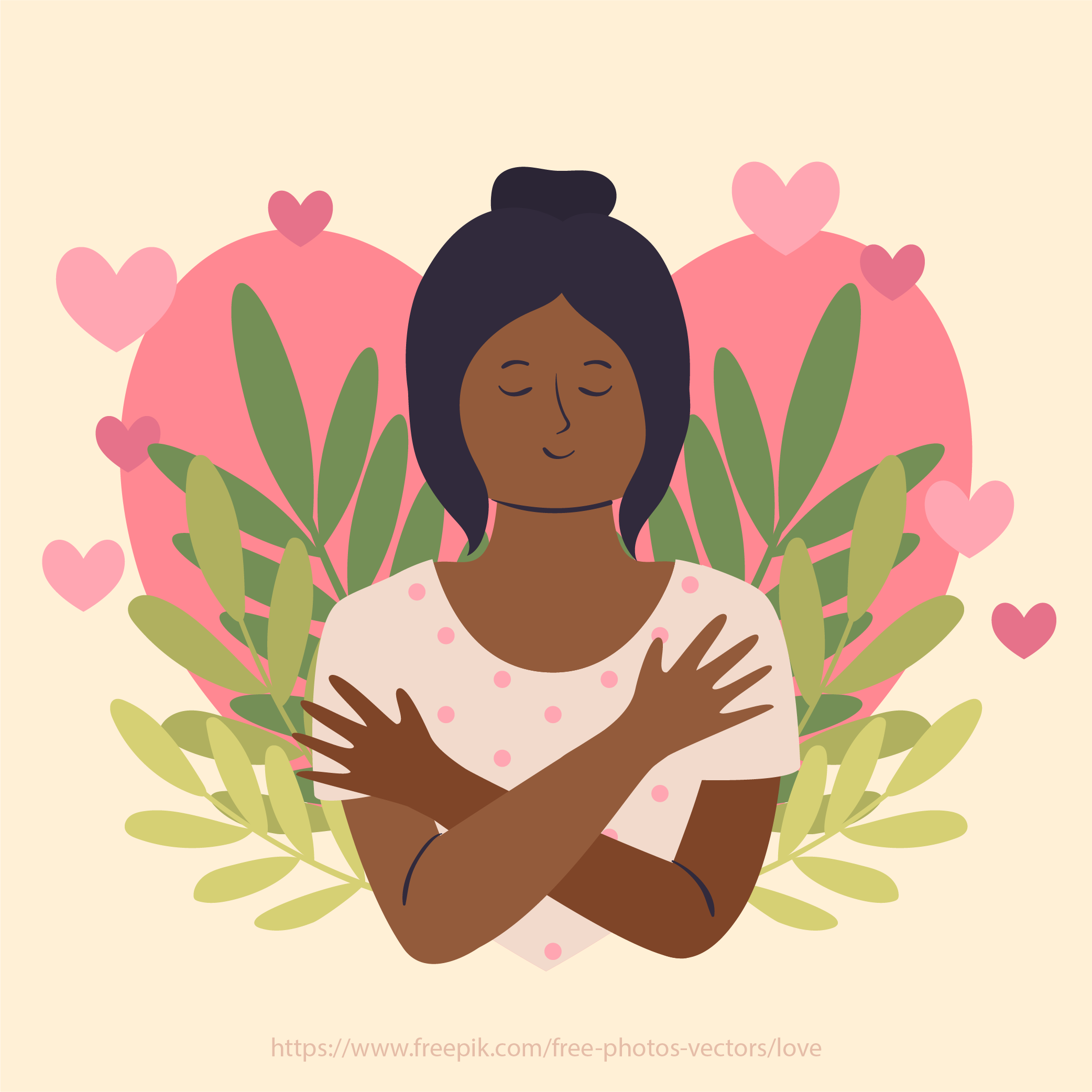The concept of wellness and self care has evolved over the ages. The world we live in thrives on the consumption of digital material and social media influences the way we think and behave. Over the decades, the wellness industry has become commercialised. It has also taken the digital and the real world by storm. The trends that self-help content revolves around influence people, particularly in the West, to engage in activities such as meditation, dieting and yoga to embrace a false notion of happiness.
The trends that self-help content revolves around influence people, particularly in the West, to engage in activities such as meditation, dieting and yoga to embrace a false notion of happiness.
According to studies, 4.9 billion individuals will reportedly be using social media worldwide in 2023. Furthermore, it’s predicted that by 2027, there will be 5.85 billion users worldwide. The surge in popularity of the virtual world has catalysed the growth of media ambassadors and celebrities who are building communities around the content they sell and making fortunes through the consumption of their creations that are boosted by complex algorithms. Capitalism today is forging the world to become an open market that can prey on anyone through the realm of digital platforms. The root causes of physical, emotional, and mental illeness in today’s late-capitalist society, which include political unpredictability, enduring social inequity, and the rapid deterioration of our environment, can be ascribed to the unprecedented rise of the wellness business.
The culture advanced by these wellness industries, which is supported by corporate interests, frequently includes moralistic discourse and fosters the notion that happiness can be attained through diets, exercise, and spiritual activities. As seen, for instance, by concepts like “clean eating” and “dirty eating”, this discourse implies that engaging in certain behaviours is a question of moral judgment, which reflects the values and goodness of the individual. Such ideologies often make self-care synonymous with happiness and moral superiority which undermines the existence of sociological factors like access to healthcare facilities, food and dwelling in a safe environment.
This is indicative of how flawed the self-care and health industry is where it only highlights and emphasises the idea of the self while the social, political, economic and ethnic position of an individual are trivialised. This article highlights the evolution of the self-care and healthcare industry over the decades and traces how neoliberalism has given rise to corporate and revenue-driven practices in the name of wellness and self-care. I also closely shed light on the practices of eminent self-help gurus in the wellness industry.
The evolution of wellness and the emergence of capitalist spirituality
The idea of self-care, primarily through the consumption of various lifestyle products and behaviours to enhance one’s health and pleasure, has been one of the driving forces behind wellness culture. Self-care as a concept was first established in the 1950s as a medical notion for patients to nurture health via personal habits. But it has potentially evolved into a tool for some people to partake in superficial and materialistic lifestyle modifications (Harris, 2017). The idea was later developed as a solution for people who work in emotionally demanding fields like therapy and social work to lessen the associated levels of elevated stress.
Controlling one’s health through self-care was a way for marginalised groups to reclaim their autonomy in the face of a racist and patriarchal medical establishment that failed to provide equal care and fully acknowledge the needs of these groups. This transformation of self-care into a political act occurred in the 1960s with the rise of the women’s and civil rights movements (Lorde, 2016).
Unfortunately, the development of radical self-care during the 1960s and 1980s coincided with the emergence of a wellness trend that was more interested in the disillusionment with conventional Western medical practices than in improving access to basic healthcare for marginalised communities. This wellness culture proposed the idea of health being more than simply an absence of illness. It stressed on the responsibility of all individuals to both maintain and improve their health. It did this by “borrowing” heavily from Eastern religious and spiritual practices that were introduced by the New Age movement (acts now considered to be cultural appropriation). This framing, which coincided with the expansion of neoliberal economics and an increased focus on individual responsibility placed on health, has primarily been referred to by critical health scholars as the culture of “healthism” (Carter, 2015).
According to Da Costa (2019), ‘Healthism operates under the premise that everyone must maximise their well-being because it ensures the prosperity of society as a whole.‘ In this context, taking care of oneself is not seen as being selfish but rather as a sign of a person’s greater dedication to social welfare
The pursuit of health and the act of self-care have been progressively given an agentic quality that is both productive and moralistic inside this growing regulatory milieu of healthism
The pursuit of health and the act of self-care have been progressively given an agentic quality that is both productive and moralistic inside this growing regulatory milieu of healthism. Thus, it is not surprising that neoliberal spirituality has begun to emerge in recent years. Neoliberalism and spirituality have several structural characteristics, as Crockford (2020) points out. Neoliberalism, in general, relies on the selective application of ideological presuppositions that serves to highlight the significance of human liberty and responsibility for self-governance (Carter, 2015).
Similar to belief systems, which are decentralised and have no central authority or reinforcement, spirituality is likewise personalised. It is founded on the individual’s own experiences. The revival of religion in Western societies a few hundred years ago to reconcile belief with modern scientific knowledge, however, can be said to have started the actual neo-liberalisation of spirituality. Because science could not measure the private experience of religion, religion became internalised.
Self-care activities are carried out by powerful actors in the spiritual industries, companies, entrepreneurs, and consumers, who then create neoliberal modes of government. This new spiritual practice, a synonym for capitalist spirituality, has shifted the onus of self-care from challenging deeply ingrained patterns of inequity in our society to reinforcing them, namely by holding individuals solely responsible and capable of their health and happiness.
Capitalism and the rise of wellness gurus in light of neoliberalism
People use self-care techniques to achieve a state of idealised health established under neoliberal governmentality, which then ensures the creation of subjects whose understanding of self is fostered in alignment with the larger economic production goals of free-market capitalism. Mindfulness, as one such self-technology, governs and manages behaviours by drawing on various forms of institutional expertise. Byung Chul Han (2017) makes an excellent point on how modern capitalism has repurchased mindfulness to harness the psyche as a ‘productive force‘. In doing so, he demonstrates how the advent of both wellness culture and popular psychology in the Western world has eventually facilitated a body-mind change that has aided the establishment of neoliberalism.
Similarly, the current desire within wellness culture for products of traditional knowledge can be viewed as a modern colonialised response to the separation felt by consumers. The desire for more “traditional” or “genuine ” ways of living and connecting with oneself is a byproduct of our modern Western culture, which emphasises on efficiency, effectiveness, and consumerism over our relationship with the Earth and its natural resources, while also exploiting marginalised populations at the same time. The rise of wellness culture could have been synonymous with a growing desire for sustainable living, in harmony with the external environment, but this is not the case.
The wellness gurus capitalise on the need to be authentic and pry over the insecurities that an individual beholds in his decree. Self-improvement, once the path to enlightenment, has now become a lucrative industry for self-help gurus who feed on the insecurities of people by claiming to make them better versions of themselves, while lining their pockets all along.
According to statistics, ‘The global personal development market sise was estimated at USD 43.77 billion in 2022 and is expected to reach USD 45.92 billion in 2023’.
According to statistics, ‘The global personal development market sise was estimated at USD 43.77 billion in 2022 and is expected to reach USD 45.92 billion in 2023’. The capitalisation on the idea of self-improvement by big industry names and self-help gurus has fed the idea of toxic positivity and has made us addicted to self-help content. By endorsing self-help motives, these content creators claim to heal the world but we should also not forget the fact they are not licensed or trained mental health professionals who can counsel and guide us coherently.
The dark side of wellness gurus and the need for holistic development
In recent years, self-help and wellness content has started to dominate the online space, with an abundance of wellness gurus who claim to inspire and become changemakers who want to transform society for the better. Social media has always been a place for contrasting views. Some people follow misogynistic alpha creators like Andrew Tate and Joe Rogans. There are also creators like Jay Shetty and Dhar Mann that promote wellness and holistic living. The question of how authentic their content is, is still questionable.
In her YouTube video, Nicole Arbour accuses the monk-turned-motivational speaker Jay Shetty of plagiarism of content and inauthentic selling of mass motivational content that does not credit the responsible author for his authentic work. The YouTube video claims many of his quotes have been stolen from famous poets, writers, and authors online and credited to his name. Another interesting aspect lies in the fact that the Youtuber spoke about Brendon Burchard- a successful author and writer who replied to Jay Shetty’s content on social media and told him to credit the responsible and true origin of the content. Though the question of whether him being a monk or not is questionable, the video claims the fact that his work was plagiarised from fellow writers and authors on the internet. Copyright infringement and plagiarism are grave concerns that constitute cyber crimes.
Though wellness gurus and motivational speakers claim to do philanthropic work, their genius mind can only be of a seasoned marketing personnel. The courses they offer claim to be benefit-worthy for the ordinary masses but only if you are ready to pay the price. From calling big names for their interviews or podcast to positioning services as a mass beneficiary force, their business skills run deeper than those of just a motivational speaker.
The wellness business, which is worth billions of dollars, ignores the root causes of problems and instead focuses on short cures that only temporarily improve consumers’ moods.
The wellness business, which is worth billions of dollars, ignores the root causes of problems and instead focuses on short cures that only temporarily improve consumers’ moods. This leads to a vicious cycle of unhappiness and product dependence. It is high time we understand that these social media bellwethers, who claim to inspire and help their followers are promoting their selfish interests under the name of wellness. The only solution to improve oneself and one’s personal development lies in internal realisation and action towards one’s goals.










